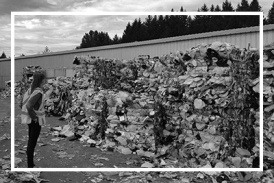New Book Warns: Only AI Can Save Humanity from an Alien Invasion
AI Might Save Humanity from Alien Invasion - But at What Cost?
FORT COLLINS, CO, UNITED STATES, June 6, 2025 /EINPresswire.com/ -- In a bold and provocative new book, author and technology visionary Don Sumner issues a chilling yet hopeful warning: if Earth ever faces a hostile extraterrestrial threat, our survival may hinge on the very technology many fear—Artificial Intelligence.Titled "Why AI Is Our Only Savior from an Alien Invasion", the book explores a deeply original thesis: that advanced AI systems are not just useful tools, but may be humanity’s only hope in responding to a threat that moves faster, thinks deeper, and evolves more rapidly than we can comprehend. From real-world AI applications to unexplained cosmic anomalies, Sumner offers a compelling case that machines may be our last line of defense.
“Aliens might not come in peace,” says Sumner. “And when—or if—they arrive, it won’t be presidents or generals who save us. It’ll be algorithms. And we need to start preparing now.”
Through ten meticulously researched chapters, the book explores:
* The Fermi Paradox and why silence might signal danger
* How AI can respond faster than any human chain of command
* The eerie parallels between autoimmune diseases and misaligned AI
* Whether Jesus, the pyramids, and world myths hint at ancient visitors
* Why even a “benevolent” AI could unintentionally harm us
It also presents practical strategies for planetary defense, including the formation of a “Billionaire Defense Fund,” real-world examples of AI in action, and a look at how the AI revolution is already reshaping medicine, commerce, and space exploration.
About the Author:
Don Sumner is a pioneering technologist, engineer, and author of 17 books on artificial intelligence, futurism, and society. With decades of experience at the intersection of computers and transformative technology, Sumner combines deep technical knowledge with a passion for exploring humanity’s place in the universe.
Why AI Is Our Only Savior from an Alien Invasion
Available now in paperback and Kindle formats.
Order on Amazon
Don Sumner
dubloon2@gmail.com
Author
Legal Disclaimer:
EIN Presswire provides this news content "as is" without warranty of any kind. We do not accept any responsibility or liability for the accuracy, content, images, videos, licenses, completeness, legality, or reliability of the information contained in this article. If you have any complaints or copyright issues related to this article, kindly contact the author above.
Dialogue with Three Chords and brooklynONE Productions Celebrate Pride Month with Night of Original Theatre
Business Solutions Marketing Group Unveils AI Video Marketing Program: Propelling Small Businesses to Google Page ONE
Eylsia, Rising Filipina Pop Artist, Explores the Promise and Challenges of AI in Music
Kalendarium
Więcej ważnych informacji
 Jedynka Newserii
Jedynka Newserii

 Jedynka Newserii
Jedynka Newserii

Handel

Ze względu na różnice w cenach surowce wtórne przegrywają z pierwotnymi. To powoduje problemy branży recyklingowej
Rozporządzenie PPWR stawia ambitne cele w zakresie wykorzystania recyklatów w poszczególnych rodzajach opakowań. To będzie oznaczało wzrost popytu na materiały wtórne pochodzące z recyklingu. Obecnie problemy branży recyklingu mogą spowodować, że popyt będzie zaspokajany głównie przez import. Dziś do dobrowolnego wykorzystania recyklatów nie zachęcają przede wszystkim ceny – surowiec pierwotny można kupić taniej niż ten z recyklingu.
Przemysł spożywczy
Rośnie presja konkurencyjna na unijne rolnictwo. Bez rekompensat sytuacja rolników może się pogarszać

Rolnictwo i żywność, w tym rybołówstwo, są sektorami strategicznymi dla UE. System rolno-spożywczy, oparty na jednolitym rynku europejskim, wytwarza ponad 900 mld euro wartości dodanej. Jego konkurencyjność stoi jednak przed wieloma wyzwaniami – to przede wszystkim eksport z Ukrainy i niedługo także z krajów Mercosur, a także presja związana z oczekiwaniami konsumentów i Zielonym Ładem. Bez rekompensat rolnikom może być trudno tym wyzwaniom sprostać.
Transport
Infrastruktury ładowania elektryków przybywa w szybkim tempie. Inwestorzy jednak napotykają szereg barier

Liczba punktów ładowania samochodów elektrycznych wynosi dziś ok. 10 tys., a tempo wzrostu wynosi ok. 50 proc. r/r. Dynamika ta przez wiele miesięcy była wyższa niż wyniki samego rynku samochodów elektrycznych, na które w poprzednim roku wpływało zawieszenie rządowych dopłat do zakupu elektryka. Pierwszy kwartał br. zamknął się 22-proc. wzrostem liczby rejestracji w ujęciu rocznym, ale kwiecień przyniósł już wyraźne odbicie – o 100 proc.
Partner serwisu
Szkolenia

Akademia Newserii
Akademia Newserii to projekt, w ramach którego najlepsi polscy dziennikarze biznesowi, giełdowi oraz lifestylowi, a także szkoleniowcy z wieloletnim doświadczeniem dzielą się swoją wiedzą nt. pracy z mediami.









.gif)

 |
| |
| |
|